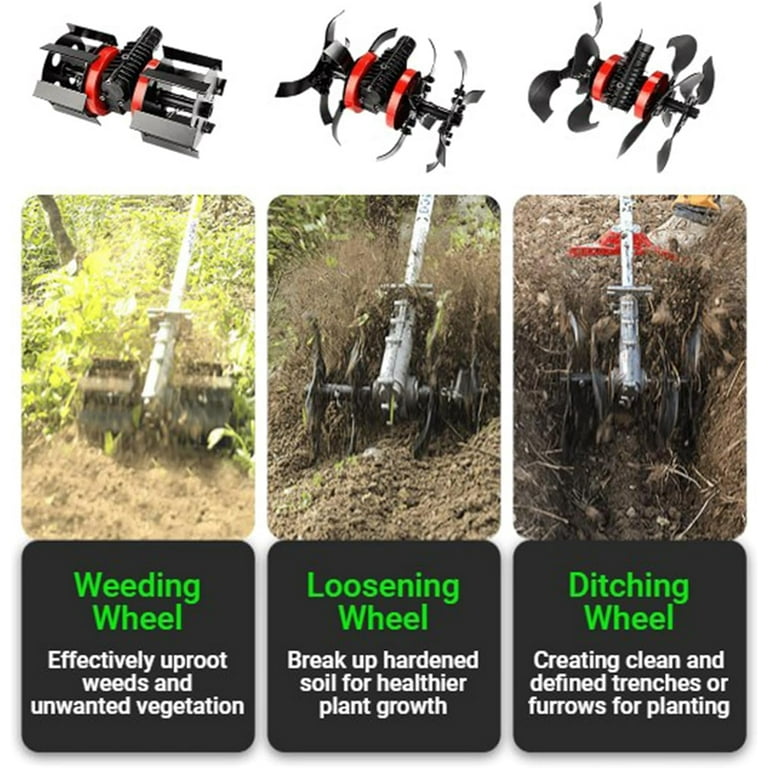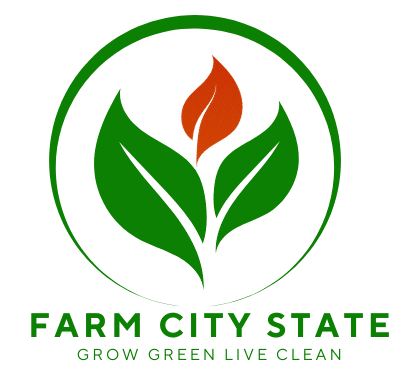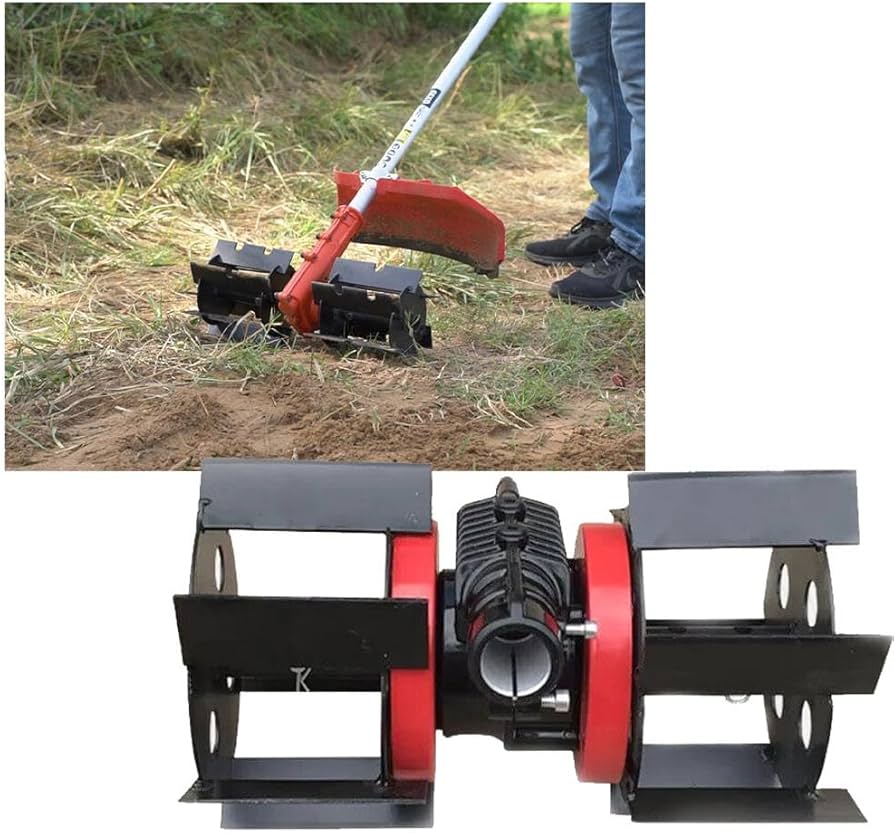As an Amazon Associate, I earn from qualifying purchases.
Healthy plants start with healthy soil. One key to healthy soil is proper aeration.
Soil loosening tools play a vital role in this process. Plants need air, water, and nutrients to grow well. Compacted soil can block these essential elements. Soil-loosening tools help break up hard soil, allowing roots to breathe and absorb water.
These tools range from simple hand forks to advanced tillers. By using these tools, you create an ideal environment for plants to thrive. Healthy soil means healthy plants, and these tools make it easier to achieve that balance. Explore the benefits of soil-loosening tools and learn how they can transform your garden.

Importance Of Soil Loosening
Soil loosening tools play a crucial role in maintaining healthy plant growth. They help break up compacted soil, which allows roots to grow more easily. Healthy soil is key for plants to absorb water and nutrients effectively. Using the right soil loosening tools can make a significant difference in your garden.
Enhancing Root Penetration
Loose soil makes it easier for roots to penetrate the ground. Deep roots are essential for stable and healthy plants. When soil is compacted, roots struggle to grow. This limits the plant’s access to nutrients and water.
Using tools like garden forks and tillers can break up compacted soil. This creates a more favorable environment for root growth. With better root penetration, plants can thrive and grow stronger.
Improving Water Absorption
Compacted soil often leads to poor water absorption. Water tends to run off rather than soak into the ground. This means plants do not get the water they need.
Loosening the soil helps improve its structure. It allows water to penetrate deeper into the ground. This ensures that plants have access to moisture, even during dry periods.
Using soil loosening tools can help create a more porous soil structure. This not only improves water absorption but also aids in better drainage. Proper water management is crucial for healthy plant growth.
| Tool | Benefit |
|---|---|
| Garden Fork | Breaks up compacted soil |
| Tiller | Improves soil aeration |
Investing in the right tools can enhance your garden’s health. Choose tools that suit your soil type and gardening needs.

Types Of Soil Loosening Tools
Soil loosening tools play a crucial role in healthy plant growth. They help improve soil aeration, water infiltration, and root penetration. Different types of tools are available to achieve these benefits. These tools can be broadly classified into manual and mechanical tools.
Manual Tools
Manual soil loosening tools are simple, effective, and easy to use. They are ideal for small gardens and personal use. Some common manual tools include the garden fork, hand trowel, and hoe.
The garden fork has several sturdy tines. It is perfect for breaking up compacted soil. It also helps to remove weeds and mix in compost.
The hand trowel is a small, handheld tool. It is great for digging small holes and transplanting seedlings. It is also useful for loosening soil around plants.
The hoe is a versatile tool. It can break up soil, create planting rows, and remove weeds. Different types of hoes are available, like the draw hoe and stirrup hoe.
Mechanical Tools
Mechanical soil loosening tools are more powerful. They are suitable for larger areas and commercial use. These tools include the rototiller, power harrow, and cultivator.
The rototiller has rotating blades. It can easily break up hard soil and mix in organic matter. It is ideal for preparing large garden beds.
The power harrow uses a series of rotating tines. It is excellent for surface soil preparation. It helps create a fine seedbed for planting.
The cultivator is a versatile machine. It can break up soil, remove weeds, and mix in fertilizers. Different models are available, from small handheld units to large tractor-mounted versions.
Manual Tools For Soil Loosening
Manual tools for soil loosening are essential for any gardener. These tools help improve soil structure, making it easier for plants to grow healthy roots. They allow for better air and water movement in the soil. This section will cover two key manual tools: garden forks and hand trowels.
Garden Forks
Garden forks are one of the best tools for soil loosening. They have long, sturdy tines that penetrate deep into the soil. This helps break up compacted soil, allowing roots to spread easily. Garden forks also help mix organic matter into the soil, which improves soil fertility.
Using a garden fork is simple. Insert the tines into the soil and press down with your foot. Then, rock the handle back and forth to loosen the soil. Repeat this process across your garden bed for even loosening.
| Benefits | Usage Tips |
|---|---|
| Improves aeration | Use in dry conditions |
| Enhances water absorption | Avoid overuse to prevent soil damage |
| Facilitates root growth | Combine with compost for better results |
Hand Trowels
Hand trowels are smaller but equally important for soil loosening. They are perfect for working in tight spaces, like flower pots or small garden beds. Hand trowels are also great for transplanting seedlings and digging small holes.
To use a hand trowel, hold it firmly and push the blade into the soil. Wiggle it to break up the soil and lift it out. This helps create a loose, friable soil that plants love.
- Transplanting: Ideal for moving small plants without damaging roots.
- Weeding: Helps remove weeds without disturbing nearby plants.
- Soil Mixing: Perfect for blending soil with fertilizers or compost.
Hand trowels are versatile and easy to use. They fit comfortably in your hand and make gardening tasks a breeze.

Mechanical Tools For Soil Loosening
Healthy plant growth often starts with well-prepared soil. Mechanical tools for soil loosening play a crucial role. These tools break up compacted soil, allowing roots to breathe. They also improve water infiltration and nutrient availability. Let’s explore some common mechanical tools used for this purpose.
Rotary Tillers
Rotary tillers are powerful tools for soil preparation. They have rotating blades that cut through the soil. This process breaks up clumps and mixes in organic matter. Rotary tillers are ideal for large gardens and farms. They save time and effort compared to manual digging.
Using a rotary tiller can enhance soil structure. It creates a fine, even seedbed. This promotes better root growth and plant health. Regular use can prevent soil compaction over time. Always choose the right size tiller for your garden’s needs.
Soil Aerators
Soil aerators help improve soil aeration. They create small holes in the soil, increasing air flow. This process helps roots receive more oxygen. It also allows water and nutrients to penetrate deeper. Aerated soil supports stronger, healthier plants.
There are different types of soil aerators. Manual aerators are suitable for small gardens. They are easy to use and affordable. For larger areas, mechanical aerators are more efficient. Regular aeration can keep your soil in top condition.
Benefits Of Using Soil Loosening Tools
Soil loosening tools play a crucial role in promoting healthy plant growth. They help break up compacted soil, making it easier for plant roots to spread. This process has numerous benefits for your garden, from improving soil aeration to enhancing nutrient uptake. Let’s explore these advantages in detail.
Boosting Soil Aeration
Proper aeration is essential for healthy soil. When soil is compacted, air pockets are reduced, limiting the oxygen available to plant roots. Soil loosening tools break up this compacted soil. This action creates space for air to circulate. With better aeration, roots can breathe and grow more effectively.
Enhancing Nutrient Uptake
Nutrient uptake is vital for plant health. Compacted soil can hinder the absorption of water and nutrients. Soil loosening tools help create pathways for nutrients to reach the roots. This ensures plants get the essential elements they need to thrive. Healthy roots lead to healthy plants, making your garden flourish.
Correct Usage Of Soil Loosening Tools
Properly using soil loosening tools is essential for healthy plant growth. These tools help aerate the soil, ensuring roots get enough oxygen and nutrients. Misuse can damage plants or soil structure. This section covers the correct usage, focusing on techniques and safety measures.
Proper Techniques
Using the right techniques is crucial for effective soil loosening. Here are some tips:
- Choose the right tool: Use a hoe for large areas and a hand fork for small spaces.
- Loosen soil to the correct depth: Aim for 6-8 inches deep for most plants.
- Work in small sections: This ensures even loosening and reduces strain.
- Avoid working on wet soil: Wet soil can compact and damage plant roots.
Follow these techniques for better soil health and plant growth.
Safety Measures
Safety is important when using soil loosening tools. Follow these measures to prevent injuries:
- Wear protective gear: Gloves and sturdy shoes protect your hands and feet.
- Check your tools: Ensure they are in good condition and free of rust.
- Use proper posture: Bend your knees and keep your back straight to avoid strain.
- Store tools safely: Keep them out of reach of children and pets.
Adhering to these safety measures ensures a safe and productive gardening experience.
Impact On Plant Health
Soil loosening tools play a vital role in the health of plants. These tools break up compacted soil, making it easier for plants to grow. Healthy soil leads to stronger plants.
When soil is loose, roots can spread out more efficiently. This allows plants to access water and nutrients more easily. In turn, plants grow stronger and produce more. The right tools can make a big difference in your garden.
Preventing Soil Compaction
Soil compaction is a major problem for plants. Compacted soil is dense and hard. It makes it hard for roots to grow. Water and air have difficulty moving through compacted soil. This can lead to poor plant health.
Using soil loosening tools helps prevent compaction. These tools break up the dense soil. This creates space for air and water. Roots can grow freely. Plants become healthier and more resilient.
Promoting Vigorous Growth
Loose soil promotes vigorous plant growth. Roots grow deeper and spread wider. This helps plants absorb more nutrients. With better access to nutrients, plants grow faster and stronger.
Soil loosening tools also help with water absorption. Loose soil holds water better. Plants have a steady supply of moisture. This is crucial for healthy growth. By using these tools, you ensure your plants get what they need.
Choosing The Right Tools
Choosing the right soil loosening tools is essential for healthy plant growth. The correct tools help maintain soil structure, improve aeration, and promote root development. In this section, we will explore the factors to consider and recommend brands to help you make an informed decision.
Factors To Consider
- Soil Type: Different soil types require different tools. Sandy soil needs less aggressive tools, while clay soil requires more robust equipment.
- Garden Size: Smaller gardens may only need hand tools. Larger areas might benefit from powered equipment.
- Tool Material: Choose durable materials like stainless steel or high-quality plastic. These materials last longer and are more effective.
- Ergonomics: Comfortable handles and lightweight designs reduce strain during use. This is crucial for prolonged gardening sessions.
- Maintenance: Easy-to-clean tools save time and effort. Look for tools with fewer moving parts to minimize maintenance needs.
Recommended Brands
| Brand | Features |
|---|---|
| Fiskars | Ergonomic handles, durable materials, suitable for various soil types. |
| Corona | High-quality steel, comfortable grips, excellent for heavy-duty tasks. |
| True Temper | Lightweight design, affordable, ideal for small to medium gardens. |
| Ames | Stainless steel blades, versatile, easy to maintain. |
Frequently Asked Questions
What Are Soil Loosening Tools?
Soil loosening tools include spades, forks, and hoes. They break up compact soil.
Why Is Soil Loosening Important?
Loosening soil improves air and water flow. It helps roots grow better.
How Often Should You Loosen Soil?
Loosen soil at least once a season. More often if soil is heavy.
Can Soil Loosening Tools Help With Weed Control?
Yes, they can. Loosening soil removes weeds and prevents new ones from growing.
What Is The Best Tool For Loosening Soil?
A garden fork is best for most soils. It breaks up clumps without harming roots.
Conclusion
Soil loosening tools play a critical role in plant health. They improve soil aeration and water absorption. Roots grow stronger and deeper. Healthy roots mean vibrant plants. Consistent use of these tools ensures the soil stays loose. Your plants will flourish better.
Investing in good soil loosening tools is wise. Healthy soil leads to a bountiful garden. Enjoy watching your plants thrive.

